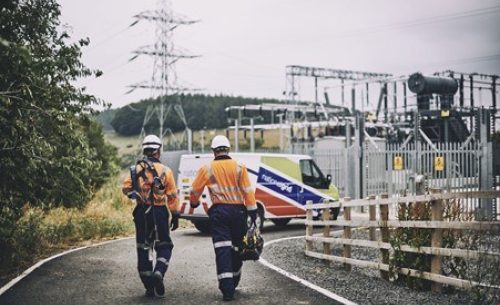

Renewables
Protecting our future
Supporting a greener tomorrow
Capula has supported many of the UKs largest traditional power generation plants for decades.
With the changes demanded by Government as part of the 10 Point Plan to deliver a Green Industrial Revolution, the development and integration of new technologies, systems and platforms are enabling the proliferation of renewable energy systems and business models.

The ‘winds of change’ are tearing through our energy system, upending old assumptions about how it is best run and by whom. This is key to driving a net-zero carbon energy future.
Supporting the renewables sector
We are playing our part in providing specialist support to the renewables sector, assisting with the integration and optimisation of new systems and technologies.
A green ambition
Renewables already account for a third of global power generation. But for the UK and world to achieve net zero carbon ambition by 2050 and the climate goals set out in the Paris Agreement, wind and solar power generation must grow from about 10% of the total power generation currently to about 60% by 2050.
This is all against a backdrop of the markets worldwide needing to reflect on the actions required to deliver a stable financial framework, to better support the rapid increases in low carbon technologies and systems whilst keeping prices to customers as low as possible.
Large scale electrification of the energy system coupled with an increased deployment of renewable technologies will be required to meet net zero targets by 2050.
Demand for electricity is expected to double and established renewable energy technologies, such as offshore wind, are to play a major role in supplying the UK’s future green powered electricity needs.
Digitalisation opportunites
Like many industries, renewable system operations are facing increasing demands to drive improvements in productivity, efficiency and competitiveness.
This in many instances is being achieved through the use of next generation Industry 4.0 technologies and innovation.
For offshore wind alone it is estimated that £100 billion will need to be spent on new infrastructure and plant.
Delivering the targeted offshore wind capacity, and ensuring reliability and suitability of supply to consumers at lowest cost, will require extensions to the existing transmission networks to help transfer power from isolated places (e.g., the Dogger bank at 160km from the English coast) as well as more HVDC interconnectors.
Capula is helping to support customers in this transition, helping to seamlessly adopt new technologies and extend the value in existing technologies.
Targeted support for developing technologies
Drivers to reduce the levelized cost of energy (LCOE) will result in digital transformation in the offshore wind market.
There is currently a significant gap between the way in which the offshore industry currently operates and how it needs to operate to successfully deliver the required capacity to the UK’s grid and its consumers.
The intermittent nature of renewable energy will have a profound effect on the UK’s Transmission and Distribution networks, as we connect more and more renewable energy capacity.
The importance to the UK’s net zero carbon ambitions of offshore, onshore wind and solar cannot be underestimated as they are critical components in delivering the expected future electrification demand, and in resolving network congestion and reliability.
The adoption of new and existing technologies and in the optimisation of renewable energy technologies and capacities connected to the grid is key to the Government’s 10 Point Plan and Green Industrial Revolution.
Our in-depth knowledge means we are ready to play our part in providing specialist support to both our existing and new customers, assisting them with the integration and optimisation of new systems and technologies.






